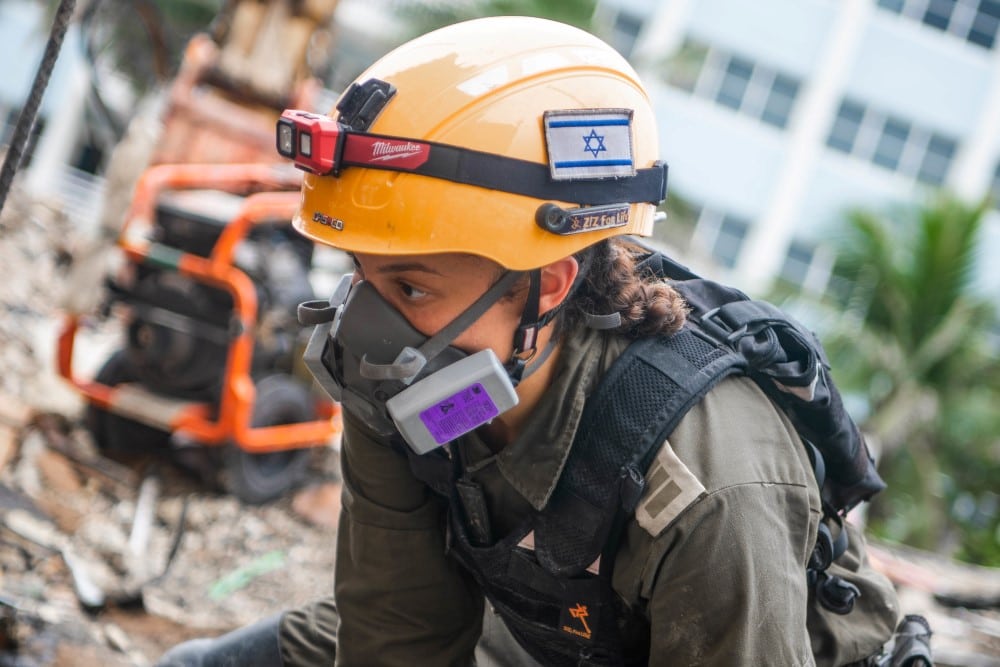
Israel is stepping up preparations for a large-scale conflict with Hezbollah, as geopolitical tensions continue to rise across the Middle East. The latest measures include efforts to increase stockpiles of strategic supplies such as medical gear, Israel Hayom reports.
Earlier, Israel’s National Emergency Authority initiated the preparation of wartime food supplies in anticipation of a potential conflict, Channel 13 reported. Thousands of packages are already in place and will be distributed by the IDF Home Front Command in areas under attack.
The Authority also instructed government ministries to prepare for extensive power outages, where at least 60% of Israel’s population may be without electricity for 24-48 hours. Another contingency plan envisions 72-hour regional blackouts.
Meanwhile, a team of 80 doctors and nurses is on standby to reinforce two northern Israel hospitals in the event of war and a constant stream of casualties. Medical staff received training and simulated an emergency deployment to ensure a swift response, Kan News reports.
In parallel, a contingency plan will be activated to evacuate the wounded by trains to central Israel hospitals if the need arises.
Two weeks ago, the Health Ministry issued directives to hospitals nationwide to ensure readiness for treating thousands of casualties. Medical centers in northern Israel were specifically instructed to prepare for operating for days without incoming supplies of food and medicine, Kan News said.
Israel is also making plans to relocate 100,000 Israelis expected to leave areas under heavy bombardment, Walla News reported.
IDF ready for action
As sporadic clashes persist, the IDF continues to expose the significant buildup of Hezbollah sites along the Lebanon border. This vast terror infrastructure includes combat positions, bunkers, and heavy rockets, Maariv Online reported.
The Air Force bombed some of these sites but a ground assault may be necessary to fully eliminate the threat, the report said. Israeli forces have been training for long weeks for a potential incursion into Hezbollah’s heartland in southern Lebanon.
One of the main aims of a large Israeli operation would be to neutralize Hezbollah’s elite Radwan unit.
Senior IDF officers are pushing a new plan to address the problem, Ynet reported. The initiative calls for a 48-hour ceasefire by Israel, followed by a heavy assault on southern Lebanon if Hezbollah continues its attacks. High-ranking military officials now have to convince Israel’s leaders to approve this course of action.
The IDF has already shifted to a more aggressive and proactive doctrine, says analyst Iris Boker. She points to a string of high-profile assassinations in Lebanon and Syria, reflecting Israel’s willingness to take greater risks and target vital Hezbollah assets and senior Iran axis commanders.
The IDF could further intensify its attacks on Hezbollah in the coming weeks, possibly expanding operations beyond south Lebanon, says military journalist Tal Lev-Ram. The decision to pull more forces out of Gaza provides Israel with greater flexibility in responding to the evolving situation in Lebanon, he wrote.
Meanwhile, defense minister Gallant informed senior US officials that Israel is nearing a decision on its next moves. While touring the northern border, Gallant told troops that Israel is prepared to use great force in Lebanon if a larger war erupts.
The defense minister’s remarks followed earlier signals that Israel is ready to take military action against Hezbollah if diplomacy fails.


